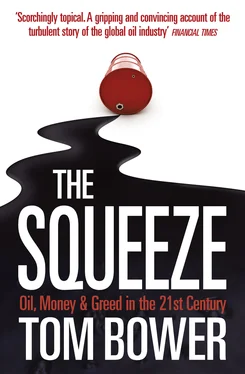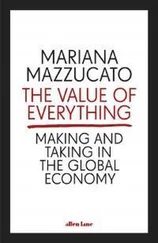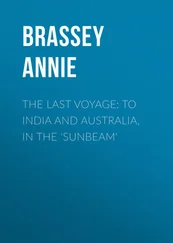The moral keynotes were also changing. Historically associated with corruption, civic corrosion and civil war, the relationship between the governments in Washington and London and the oil companies had been a dominant topic for a century. Posing as representatives of mankind’s interests, but beyond mortals’ control, the corporations’ chairmen appeared detached from national governments. Uncertain who was using whom, many debated whether the oil companies should be supported, controlled or investigated. An important theme explored by Yergin and Sampson was the battle waged by America’s federal and state governments against J.D. Rockefeller, the creator of America’s oil industry. The epic legal contests against oil companies had usually ended in the governments’ defeat, spurring public anger about Big Oil. ‘ His lack of scrupleand his mendacity,’ wrote Sampson of Rockefeller, ‘provoked a continuing distrust of the oil industry.’
Oil provokes irreconcilable emotions. Moralising sermons about oil have never stopped, but since Sampson’s and Yergin’s books, some issues have changed. Destitution in the Niger delta, the contamination of Alaska’s pristine wilderness, the destruction of Canada’s forests and spreading corruption across Africa are all blamed on oil companies. ‘ African oil didnot create the system or its failings,’ wrote Nicholas Shaxson in Poisoned Wells , accusing Shell, ExxonMobil and the French oil corporation Elf of destroying idyllic communities. Serious authors have claimed that the oil industry is ‘ among the least stableof all business sectors’, and that supplies are ‘utterly dependent on corrupt, despotic “petrostates” with uncertain futures’. The riddle is whether, in pursuing their priority of caring for their shareholders and their customers, the oil majors should refrain from interfering in the internal affairs of Third World countries, or accept a duty to prevent the ‘institutionalised pillage’ of impoverished populations and to oversee the fate of their nations’ oil wealth.
These issues continue to be exhaustively debated. Besides the technical and corporate histories, there are many descriptions of evil corporations exploiting the Third World and causing environmental catastrophe. In addition, a new dominant theme has arisen: ‘The End of Oil’. Predictions laced with alarming statistics foreshadow permanent shortages, blackouts and soaring prices. ‘Terminal decline’ is the favoured phrase of those speaking in apocalyptic terms about the world imminently running out of oil. One authoritative tract is Twilight in the Desert (2005) by the investment banker Matthew Simmons, who claims that Saudi Arabia’s oil production is ‘at or very near its peak sustainable volume (if it did not, in fact, peak almost 25 years ago), and is likely to go into decline in the very foreseeable future’. Even Simmons’s critics acknowledge the value of his polemic. If Saudi Arabia’s supply of oil does indeed decline, the world’s destiny is questionable. However, despite Simmons’s insistence that his doom-laden prediction is ‘not a remote fantasy’, Saudi Arabia increased its production capacity from eight million barrels a day in 2005 to 12.5 million in 2009, when the world’s daily consumption was 86 million barrels. In the aftermath of prices crashing in July 2008 and surplus oil sloshing around the world, the prophets of doom disappeared from the television studios and newspapers. Since then, the wailing about the world’s endangered oil supplies has reverted to blaming the oil companies for restricting their investment in the search to find new oil.
Unlike oil’s first century, over the last 20 years no single nation, government, cartel or corporation has controlled its fate. Markets have determined prices and investment; but there has been a twist. Because the oil-producing countries retain up to 90 per cent of the profits, the Western oil companies have the delicate task of persuading what are usually classified as Third World countries to share their wealth and sell access to their reserves. The apparent shift of power to African, Asian and Middle Eastern governments provoked the increasingly fashionable assertion that ‘White people and their companies no longer pull the strings.’ The contention that the former imperialists have been humbled ignores the irrefutable truth that without the ‘white people’s’ technology, organisation and marketing, the oil-producing nations could not prosper. In Africa, Asia and South America, impoverished nations may be ecstatic about the sudden promise of effortless wealth; but it is only realisable with skills invented by Western companies.
In pulling the strands of the oil industry together, this book takes no sides in the arguments among the specialists and partisans. Rather, I have recognised that many of those employed in the oil industry are remarkably intelligent individuals pursuing their ambitions with expertise and inspiration, rather than being inextricably entangled, as the alarmists suggest, in corruption, conspiracies and cover-ups.
United by a smelly, unattractive product, most of the millions of employees who work in the oil industry are strangers to each other. Unlike manufacturing cars or planning a space programme, oil offers no natural bond. The petrol-station attendant, the crews of the supertankers, the offshore engineers, the dedicated geologists, the excitable traders, the sober accountants, the nationalistic politicians, the rig workers in the prairies, deserts and jungles, the refinery workers and the corporate chieftains are all interdependent in their efforts to produce and convert crude oil. Yet there is no bond between them to overcome their separation and rivalry. Oil unites all their destinies, but they are professionally isolated. Since the late 1980s, however, there has been a common thread: some squeeze markets, some squeeze rocks, some squeeze crude oil through refineries, while others squeeze governments and rival corporations. Oil is not a business for fools or the faint-hearted.
To chart for the first time what has occurred over the past 20 years, I have followed the careers of some of the principal personalities who have determined oil’s fate as its price rose from $7 to $147 a barrel. As I interviewed nearly 250 people across the world, I gradually came to understand the perpetual conflict between the oil companies and the nations that control the reserves, the arguments between consumers and the proponents of the end of oil and climate change, the overwhelming influence of the oil traders, the ingenuity of the explorers, the ambitions and frustrations of the chieftains who manage the world’s biggest corporations, and the agendas of politicians anxious to control the world’s lifeblood.
The story of oil over the last two decades is fascinating, but to understand all the disparate elements – the personalities, the corporations, the governments, the traders and the geologists – requires gradual introduction. Unlike the straightforward structure of a standard history or the description of a particular event, this book takes the reader on a journey through the lives and eyes of the major characters who have dominated the industry. As readers become familiar with the labyrinthine complexity of the subject, I hope that, like myself, they will become excited by the discovery of an epic story at the heart of all our lives.
After interviewing nearly 250 key people, I selected a handful to reflect the turbulent era. Over the 20 years, John Browne of BP was undoubtedly the dominant personality in America and Britain. His rival chief executives, including Lee Raymond of Exxon, Phil Watts of Shell and David O’Reilly of Chevron, were similarly robust, but were begrudgingly compelled to follow his course. In a parallel universe are the oil engineers like Dave Rainey, challenging scientific boundaries to discover oil six miles beneath the sea bed. Understanding the technology might seem challenging, but I believe that even laymen will be gripped by the saga. Unknown to the engineers are the oil traders, churning billions of dollars every day in speculation about unpredictable prices. After speaking to dozens of traders and reporters, I chose to follow Andy Hall, an understated multi-millionaire hailed by his generation as a genius. Of all the oil-producing countries, events in Russia became far more interesting than in the OPEC countries. Fortunately, as oil prices rose from $30 a barrel towards $147, I hitched myself to Mikhail Fridman, an oil oligarch in the midst of a fierce battle with BP as President Putin and other politicians, government officials and lifelong experts all sought to influence oil’s fate. Challenging their assumptions and decisions are committed environmentalists. All those personalities and interests found their place in a narrative which makes no attempt to be encyclopaedic, but simply to tell an astonishing story.
Читать дальше











![John Bruce - The Lettsomian Lectures on Diseases and Disorders of the Heart and Arteries in Middle and Advanced Life [1900-1901]](/books/749387/john-bruce-the-lettsomian-lectures-on-diseases-and-disorders-of-the-heart-and-arteries-in-middle-and-advanced-life-1900-1901-thumb.webp)
